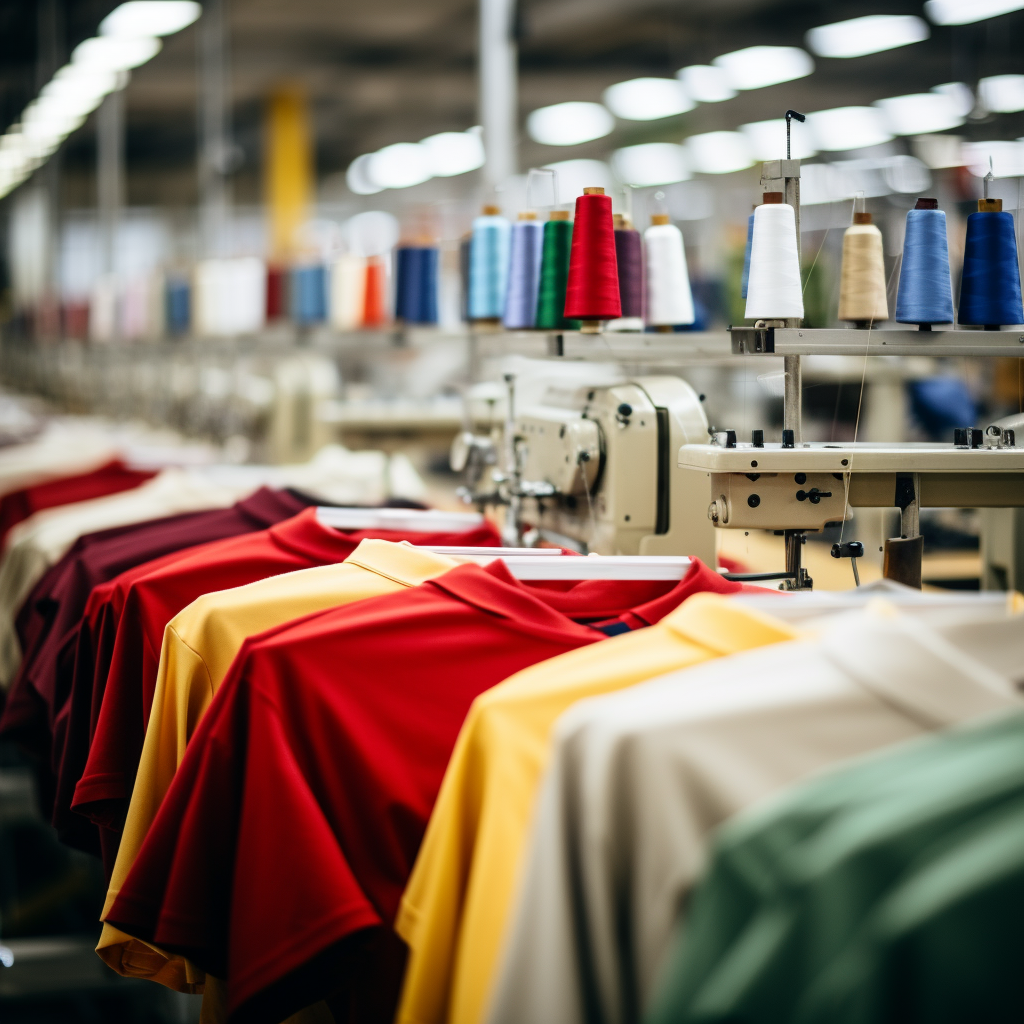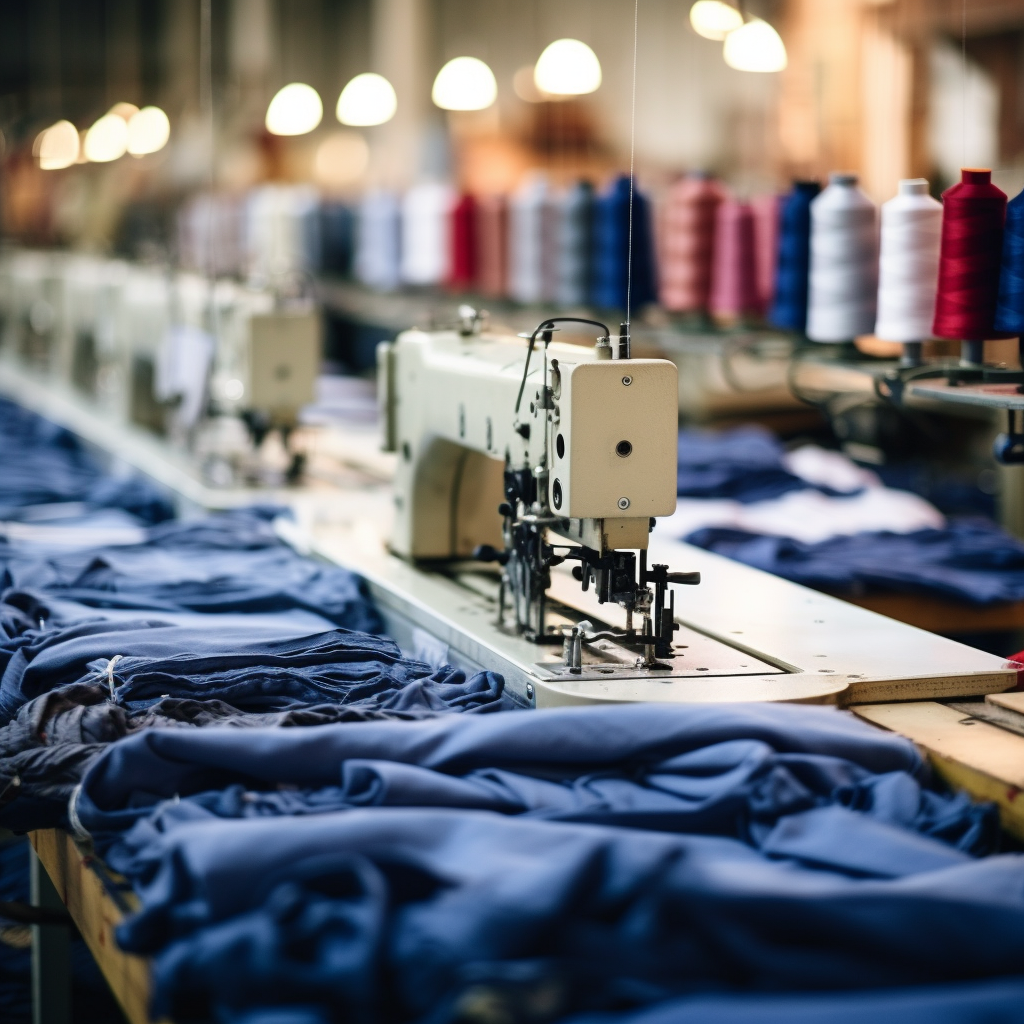Introduction
As the world becomes more conscious of its environmental footprint, the fashion industry faces increasing scrutiny for its role in environmental degradation. With concerns ranging from resource depletion to pollution, it’s become increasingly important to transition toward more sustainable practices. This transformation is already underway, with numerous fashion brands making significant strides in eco-friendly production and ethical labor standards.
In the United States, there are several frontrunners in this sustainability shift, creating a market that provides consumers with responsible fashion choices. This article will shine a spotlight on six of the best sustainable clothing manufacturers in the country. We’ll explore what sets these brands apart and how they contribute to a healthier planet and fairer labor practices.
In the subsequent chapters, we’ll dive deeper into what sustainable clothing means, its importance, criteria for choosing sustainable clothing manufacturers, detailed reviews of each selected brand, and the essential role of consumers in driving this change.
By educating ourselves and consciously selecting where we purchase our clothes from, we’re not just investing in high-quality, long-lasting garments; we’re also participating in a broader global movement toward a sustainable future. The change begins with us – and it begins with our choices.
What is Sustainable Clothing?
Sustainable clothing, often synonymous with terms like “ethical” or “eco-friendly” fashion, is about far more than just the end product. It’s about an overarching philosophy that values environmental stewardship and social responsibility at every step of the production process.
At its core, sustainable clothing is designed to minimize the negative environmental impact associated with traditional clothing production. It involves employing strategies such as using organic or recycled materials, limiting harmful dyes or chemicals, and minimizing waste in the manufacturing process.
But it’s not just about the planet. A truly sustainable clothing brand also takes into account the people behind the garments. This means providing safe working conditions, fair wages, and fostering a transparent, respectful relationship with the workers who make the clothes.
Another critical aspect of sustainable clothing is durability. Rather than creating ‘fast fashion’ designed to be worn a few times and then discarded, sustainable clothing manufacturers aim to produce high-quality items that will last for years. This not only reduces waste but also provides consumers with more value for their money.
To summarize, sustainable clothing encompasses environmental, ethical, and economic dimensions. It is a holistic approach to fashion that aims to safeguard our planet, protect workers’ rights, and deliver long-lasting, high-quality garments to consumers.

The Importance of Sustainable Clothing
The importance of sustainable clothing lies in the substantial benefits it offers – to our planet, to industry workers, and to us as consumers. Let’s explore these key areas in more detail.
Environmental Impact
The fashion industry is one of the largest polluters worldwide, with immense water consumption, hazardous chemical usage, and significant greenhouse gas emissions. Sustainable clothing mitigates these impacts by incorporating environmentally-friendly practices such as using organic or recycled materials, reducing water and energy usage, and minimizing waste.
Social Responsibility
In many clothing manufacturing hubs, poor working conditions, low wages, and human rights abuses are unfortunately commonplace. Sustainable clothing manufacturers prioritize fair labor practices, ensuring that workers are treated ethically and paid fair wages. This not only improves workers’ lives but also sets a positive example for the industry as a whole.
Consumer Health and Satisfaction
Sustainable clothing is often made from natural, organic materials free from harmful chemicals, making it safer and healthier for consumers. Additionally, the high-quality, durable nature of these clothes provides consumers with lasting value, moving away from the ‘throwaway culture’ associated with fast fashion.
Economic Benefits
While sustainable clothing may come with a higher price tag, it can offer more value in the long run. High-quality, durable clothes mean consumers need to replace items less frequently, saving money over time. Plus, supporting sustainable brands can lead to industry-wide change, promoting economic growth in a more ethical and eco-friendly direction.
Recognizing these benefits, it becomes clear that sustainable clothing is not just a trend, but a necessity for a healthier planet and a more ethical fashion industry. In the next chapter, we’ll look at the criteria for selecting sustainable clothing manufacturers, guiding your choice towards brands that truly make a difference.
Criteria for Selecting Sustainable Clothing Manufacturers
When looking for sustainable clothing manufacturers, there are several key criteria to consider to ensure you’re truly investing in ethical, environmentally-friendly apparel.
1. Sustainable Materials
Manufacturers should use organic, recycled, or sustainably-sourced materials. These might include organic cotton, recycled polyester, or other innovative eco-friendly fabrics. Avoid manufacturers that use synthetic materials or conventionally grown cotton, both of which have significant environmental impacts.
2. Ethical Labor Practices
Ensure the manufacturers uphold high standards for worker welfare, providing safe working conditions, fair wages, and a transparent supply chain. Companies that are certified by Fair Trade or similar organizations are often a good bet.
3. Low-Impact Manufacturing
Look for manufacturers that limit their use of harmful dyes and chemicals, reduce water usage, and minimize waste in their production processes. Some brands may also use renewable energy sources in their factories.
4. Durability and Quality
Sustainable clothing should be designed to last. High-quality, durable garments not only offer better value for money but also reduce waste associated with disposable ‘fast fashion’.
5. Certifications
Third-party certifications can provide assurance of a brand’s sustainability claims. Look for certifications like Global Organic Textile Standard (GOTS), Bluesign, Fair Trade Certified, or others related to organic materials, ethical labor practices, and environmental standards.
6 Best Sustainable Clothing Manufacturers in the USA
This chapter provides an in-depth review of six leading sustainable clothing manufacturers in the USA, based on the criteria outlined in the previous chapter.
5.1 Patagonia
Patagonia, an outdoor clothing brand, has been a pioneer in sustainable clothing for decades. The company uses organic cotton, recycled polyester, and other sustainable materials in its products. Patagonia also employs fair labor practices, regularly audits its supply chain for ethical standards, and invests in renewable energy for its operations. A member of the Sustainable Apparel Coalition, Patagonia is dedicated to reducing its environmental footprint.
5.2 Eileen Fisher
Eileen Fisher is a women’s clothing brand known for its commitment to sustainability. The company uses organic and recycled materials, and it is transparent about its supply chain, ensuring fair wages and working conditions for its workers. Eileen Fisher also has a take-back program, where customers can return used garments to be recycled or resold, promoting a circular fashion model.
5.3 Kotn
Kotn creates beautifully simple basics from Egyptian cotton. They work directly with cotton farming families in Egypt, providing fair wages and investing in the local community. Kotn also places a strong emphasis on traceability, providing detailed information about their supply chain. They’re B Corp certified, indicating their commitment to social and environmental standards.
5.4 Alternative Apparel
Alternative Apparel focuses on simple, soft basics made sustainably. The company uses organic and recycled materials and low-impact dyes, and its factories operate in accordance with the Fair Labor Association Workplace Code of Conduct. Alternative Apparel also uses eco-friendly packaging and has a vendor recycling program.
5.5 Amour Vert
Amour Vert, which means “Green Love” in French, lives up to its name. For every tee purchased, they plant a tree. The company uses organic and sustainable materials, including a fabric created from beechwood pulp that’s twice as soft as cotton. Amour Vert manufactures most of its garments in limited quantities in the USA, reducing waste and carbon emissions.
5.6 Outerknown
Founded by professional surfer Kelly Slater, Outerknown aims to blend style and sustainability. The company prioritizes transparency and has partnered with Fair Trade Certified factories. Outerknown uses organic, recycled, and regenerative materials and has a robust program for tracking and reducing its environmental footprint.
| Brand | Sustainable Materials | Ethical Labor Practices | Low-Impact Manufacturing | Durability and Quality | Certifications |
|---|---|---|---|---|---|
| Patagonia | ✔ Uses organic cotton, recycled polyester | ✔ Audits supply chain for ethical standards | ✔ Invests in renewable energy | ✔ High-quality outdoor gear | ✔ Member of Sustainable Apparel Coalition |
| Eileen Fisher | ✔ Uses organic and recycled materials | ✔ Transparent about supply chain | ✔ Uses low-impact dyes | ✔ High-quality women’s clothing | ✔ Several items Fair Trade Certified |
| Kotn | ✔ Uses Egyptian cotton | ✔ Provides fair wages to cotton farmers | ✔ Emphasizes traceability in supply chain | ✔ High-quality basics | ✔ B Corp certified |
| Alternative Apparel | ✔ Uses organic and recycled materials | ✔ Factories adhere to Fair Labor Association Code | ✔ Uses low-impact dyes | ✔ High-quality basics | ✔ Partner of Fashion Revolution |
| Amour Vert | ✔ Uses organic and sustainable materials | ✔ Manufactures in limited quantities | ✔ Uses low-impact dyes | ✔ High-quality, stylish garments | ✔ Partners with American Forests |
| Outerknown | ✔ Uses organic, recycled, and regenerative materials | ✔ Partners with Fair Trade factories | ✔ Prioritizes transparency | ✔ High-quality, stylish garments | ✔ Fair Trade, Organic Certified |
This comparison table gives an overview of how each brand stands up against the sustainability criteria. Each of these six brands showcases a strong commitment to sustainable practices, making them a great choice for the eco-conscious shopper.

The Role of Consumers in Promoting Sustainable Clothing
As consumers, our buying choices have a significant influence on the fashion industry. By supporting sustainable clothing manufacturers, we can help drive the industry towards more ethical, eco-friendly practices.
Choosing sustainable clothing is not just about making an eco-friendly choice; it’s a statement that we value the environment and the people who produce our clothes. Each time we choose to buy from a sustainable brand, we’re voting with our wallets for a better, fairer fashion industry.
But our role doesn’t end there. We can also spread the word about sustainable brands, encouraging friends and family to make more conscious buying choices. Additionally, we can demand transparency from fashion brands, asking them to disclose information about their supply chains and labor practices.
In conclusion, as consumers, we have significant power to shape the fashion industry. By choosing sustainable clothing, we can contribute to a more ethical and environmentally friendly fashion future.

